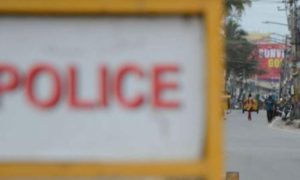Chances of a court-imposed additional debilitating burden on banks and the exchequer in the form of a wider debt relief to borrowers appeared to ebb on Wednesday. Hearing a batch of petitions seeking a waiver of interest on deferred EMIs during a six-month repayment moratorium that ended on August 31, the Supreme Court said, “We welcome the decision of the government to give a helping hand to the small borrowers”, but emphasised that the decision should be implemented at the earliest.
The court asked the Centre why it was “taking so much time” to implement the promised compound interest waiver scheme on loans up to Rs 2 crore. It asked the government to come up with the notification/orders by November 2, the next date of hearing.
During a previous hearing, the court had said the scheme was “not satisfactory”, and asked the government and the central bank to place on record the actions taken on the KV Kamath committee’s report on debt restructuring. It even urged government-RBI to consider the issues raised by the real estate associations and power producers over their rising debt burden.
As reported by FE earlier, the waiver of compound interest under the scheme proposed by the Centre in an affidavit is estimated to cost the Centre only Rs 6,500 crore. However, the government had stated in an affidavit that extending the interest relief to all “all types of loans for all categories of borrowers” would cause a huge burden of Rs 6 lakh crore on banks, likely wiping out a major part of their net worth and even rendering most of them unviable.
The government and RBI had last week ruled out any further waiver of interest on interest, or compounding as this will entail significant economic costs which cannot be absorbed by the banks without serious dent of their financials, which in turn will have huge implications for the depositors and the broader financial stability.
Refusing to give a month’s time to implement the interest waiver on loans of up to Rs 2 crore, a Bench comprising justices Ashok Bhushan, R Subhash Reddy and MR Shah said, “Why should it take so long to implement it? The common people are worried. Delay is not in the interests of common man. We are concerned with people with loan up to Rs 2 crore.”
“We have always permitted government to come back with directions but it is not in the interest of the common people to keep delaying once you have decided. Please see the plight of a common man. You have not issued any order to anybody. You should have done so to the banks,” the judges observed.
Solicitor General Tushar Mehta told the Bench that the outer limit for giving relief is November 15. “This is a bit harsh on the government. We do not stand to gain anything by delaying implementation… Banks will waive interest on interest and then will be compensated by government and the calculation will have different modalities. We will have to ensure that bank gives us a proper format. All this will take time to compute interest liability to be paid by the government to banks,” the SG argued, adding that “November 15 is the outer limit for implementation but the government will try to implement it even earlier than that”.
Senior counsel Harish Salve, appearing for the Indian Banks Association, echoed similar views, saying that the sheer number of loans issued “up to Rs 2 crore” category makes the process somewhat time-consuming and there are no second thoughts on implementing the government decision.“The complexity is such, it requires time,” he added.
The government has reiterated that the banks are fully empowered to resolve Covid-19 related stress and customise reliefs to individual borrowers, other than big borrowers, through grant of various concessions/reliefs, in terms of alteration in the interest rate or by taking haircuts.
Under the RBI’s special window, lenders are allowed to recast stressed retail and corporate loans without classifying them as non-performing, provided that they set aside 10% provisions on such advances.
On September 3, the SC had directed banks against declaring loan accounts that were not NPAs prior to August 31.



































